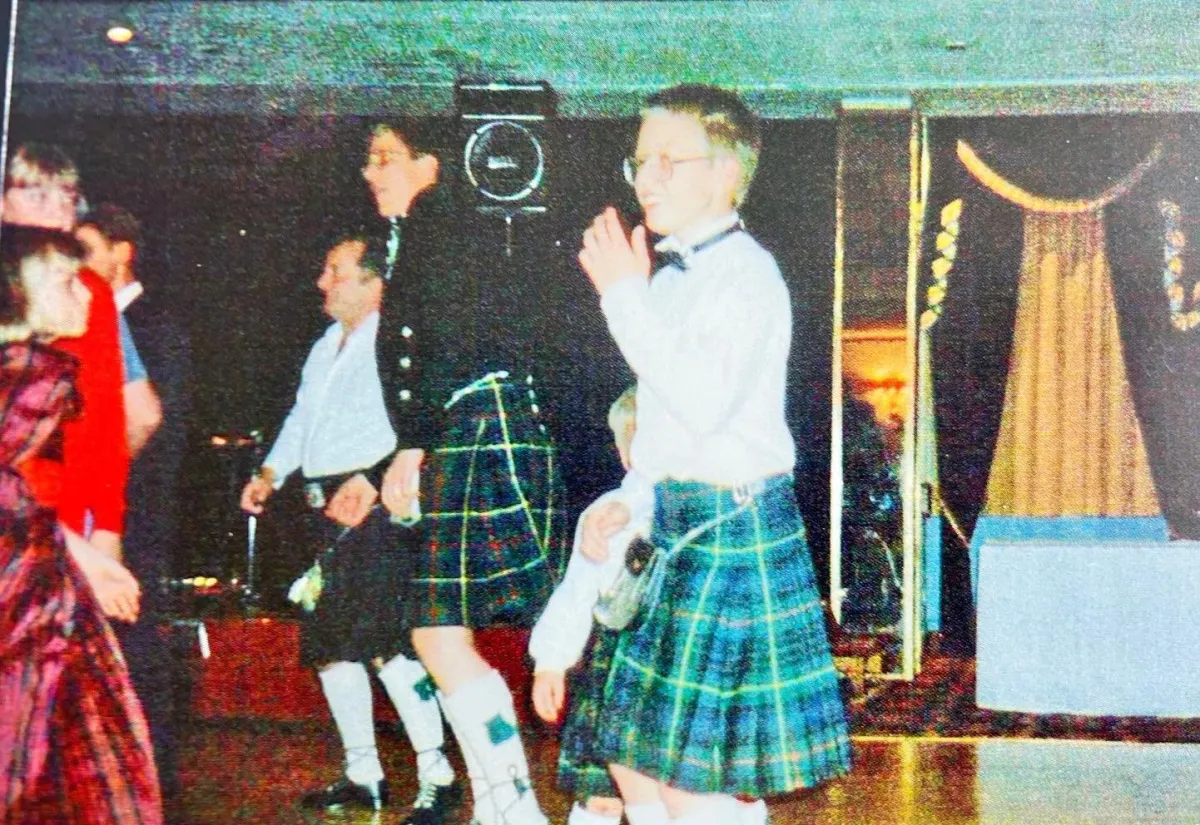Helping You Work With Your Brain, Not Against It
ADHD coaching for real life, whether you’re newly diagnosed, feeling overwhelmed, or just trying to hold it all together.
1:1 support, live group sessions, and practical tools that actually fit how your brain works.
New affordable online coaching launching in

Helping ADHD Minds Find Their Own Way
I’m Fraser, an ADHD coach, father, and former corporate leader who didn’t realise I had ADHD until I was 43.
Like many late-diagnosed adults, I spent years thinking I just wasn’t good enough. I pushed myself hard, burnt out often, and masked my struggles to keep up with a world that didn’t quite fit.
When I finally got diagnosed, everything changed. I stopped blaming myself and started building a life that worked for my brain. Now I help others do the same.
I work with adults who feel overwhelmed, newly diagnosed, or stuck, offering practical strategies, honest conversations, and a place where they don’t have to explain themselves.
Whether it’s 1-to-1 coaching or a structured group programme, the goal is always the same:
To help you feel understood, and to help you move forward.
Does any of this
SOUND FAMILIAR?
You always feel behind, even when you’re working flat out.
There’s a constant mental to-do list running in the background, and even small tasks feel like a mountain.
You’ve been called lazy, disorganised, or too sensitive.
But deep down, you know you’re trying harder than most people realise.
You procrastinate, overthink, and crash hard when you finally stop.
It’s not just time management — it’s emotional exhaustion, decision fatigue, and never feeling like you’re doing enough.
You’ve Googled ‘Do I have ADHD?’ more than once.
Maybe you’ve been diagnosed. Maybe not. But you know something isn’t working, and you’re ready for support that actually makes sense for your brain.

Our Mission
Helping ADHD Adults Feel Less Alone — and More in Control
Whether you're newly diagnosed or have been masking for years, our mission is simple:
Help you understand your brain, stop the spiral of shame, and build a life that actually fits.
How I Can Help
1:1 ADHD
Coaching
Get tailored support with practical tools, calm accountability, and a coach who gets how your brain works.
Perfect if you're ready for personalised help, but not sure where to start.
6-Week ADHD
Group Programme
Live coaching, structure, and a toolkit that actually fits your brain — all in a space where you realise you're not the only one.
Ideal if you want guidance and to hear from others like you.
Free ADHD
Strengths Report
Not ready for coaching? Start with a personalised analysis based on your ADHD traits — and see what’s actually working in your brain.
A zero-pressure way to get insight, hope, and clarity.
What others are saying

"Fraser is awesome"
Fraser is awesome and I enjoyed working with him. He taught me so much and in a way that makes sense to me. He's given me a new found confidence.


"My life changed forever"
He taught me so much and in a way that makes sense to me. He's given me a new found confidence.


"Life was SO hard"
Fraser helped me to turn the waltzers into teacups and calm the chaos, I'm still spinning and dizzy at times but now I get to enjoy the views around me!

Fraser & Cubic write a blog to help you with your ADHD if you aren't ready to reach out for help just yet.

How to Support Children with ADHD Facing Bullying
Growing up different without knowing why
When I think about my childhood, the loudest feeling is confusion. I did not know I had ADHD, it was written off as me not trying hard enough. I couldn't understand why social situations were such hard work. Other kids seemed to read social cues as if they were subtitles. I was either trying too hard and coming on strong, or not trying at all and drifting to the edge.
That mix left me with low self-esteem that lingered into adult life. I was always slightly outside the social scene. Close enough to watch, never quite inside it. If you are a parent of ADHD children, you might recognise that look in your own child. The one that says, I am here, but I am not part of it.

Justice sensitivity, the stubborn streak that backfired
One trait made my ADHD struggle worse. Justice sensitivity. If something felt unfair, I could not let it go. The last thing I was going to do was let a bully believe they had won. Each time I stood my ground, the so called friends around me stepped back. Suddenly I was alone, facing a bully group who knew they had numbers on their side.
That is when the worst stuff happened. Mud rubbed into my hair. My things hidden. Physical aggression that felt like it would never stop. There were moments when it felt like an entire class had turned their faces away. Teachers saw the impulsive retort and labelled it inappropriate behavior. I got negative attention and negative feedback.
The bully perpetrators often walked away without consequences, sometimes finding me at the weekend never allowing me to escape.
Nobody saw the underlying issues. Nobody guessed I was a child with a neurodevelopmental disorder trying to make sense of social rules that did not match how my brain worked.
A rare proud moment in the pool changing room
There was one day I still feel proud of. A boy threw my swimming bag into a locked changing room.
The old pattern would have been shame and silence. Not that day. I held him against the wall until an adult arrived. He had to climb in, fetch my bag, it was escalated and then the following week he was made to apologise in front of the group.
Was it aggressive behaviour? Yes. The best way to handle bullying behaviour? Probably not. But for once I was not the easy target. For once, I had the best position. That tiny win still to this day lets me know that I have what it takes to stand up and be counted.

Moving schools, looking the part, still not fitting in
People often say, change schools, fresh start. For me, it made things worse. I was moved because I was not achieving. Each move meant starting again in a new social scene where I was already behind.
Here is the bit people do not see. My parents did everything they could to help. They came from the belief that education is the key. They budgeted hard to put me into private school. I had the right uniform, the right shoes, the right bag (well it actually wasn't but it was the bag I wanted).
They were doing their best. In many ways, they were doing brilliantly. But the social life around me ran on unspoken rules. I did not ski at half term, I did not have the same holidays, I did not speak the same language of weekends away. So I was still the outsider.
A few years later for my GCSE's I moved back to my old comprehensive school, back amongst my old 'friends' but with years difference experiences and history between us. Now I was the kid who had been to private school, and the story became I thought I was better than them. The labels kept shifting while I stayed the same spotty, four eyed boy trying to survive social interactions that felt like a maze.
By sixth form I was back in private education, I remember vividly my parents threatening to move me to the head of year and their response, 'yes we think it would be better if he did', how's that for a little bit of rejection sensitivity?
Not quite academic enough for the high flyers, not naughty enough for the rebels. Always in the middle. That middle can be the hardest place. You are not seen until it is time to be singled out.
What made it harder was watching my brother and sister thrive. They seemed to find their path with ease. I didn't begrudge them but it still stung.
My Dad told me a few years ago I was lucky my younger brother didn't come first, as he was so easy, and annoyingly good at EVERYTHING that he would off probably believed even more that I was just not trying.
The comparison added another layer to the shame I carried.
The slow slide into unhealthy coping
That sense of not belonging carried on. I missed out on the easy flow others had in social settings. Social anxiety crept in. Depressive symptoms followed.
I struggled with my weight, now realising that I was eating to find dopamine but this wasn't a word I even know existed.
By the time most people were revising for exams, I had moved onto alcohol as a quick fix, knowing where I could buy it and hiding it in wardrobes taking sips before bed to sleep, this behaviour carried and escalated until I was diagnosed at 43.
For many of us with attention deficit traits, substance abuse starts as a misguided solution. It numbs the edges, helps you join in, until it becomes a dangerous crux.
I wish someone had known what to look for. I wish someone had given me extra support rather than more detentions.

Why ADHD raises the odds of bullying
We have better language now. We also have research. I will not bore you with detail or quote a national surveys, but the pattern is clear.
Studies studies show ADHD children have a higher risk of becoming victims of a bully than the general population.
Common characteristics that raise the risk factors include:
Social skills developing later, which creates significant differences in social interactions and peer group dynamics.
Missing body language and social cues, so you enter or speak at the wrong times.
Impulsive behaviours and the occasional impulsive retort, which draws negative attention.
Justice sensitivity and emotional regulation struggles, which make it harder to walk away.
Comorbidities, for example autism spectrum disorder, oppositional defiant disorder, conduct disorder, or an intellectual disability. These can add independent risk and increased risk of bullying.
In clinical settings ADHD is described as a neurodevelopment disorder. Some call it a mental condition.
Either way, the point is simple. Without the right support, a child feels lost, and the higher likelihood of bullying rises.
Future studies and future research will keep refining the picture, but we already know enough to act.
Forms of bullying to watch for
Bullying is not only a punch on the playground. There are different forms of bullying, and all of them are a serious problem.
Relational aggression. Whispering, rumours, silent treatment, being left out of team sports or group work.
Physical aggression. The obvious kind, from shoves to more serious harm.
Online. Social media, group chats, never able to escape from someones clutches.
There is also a ladder of bully perpetration. Sometimes it is the main group. Sometimes it is a much younger kid copying the older ones. Sometimes it is the entire class going along with a joke.
If your child’s school downplays this with boys will be boys, push back. Respectfully, calmly, and firmly.

What made me a target
If I had to summarise, I would say I was easier targets two ways. First, I missed social rules and personal space. I would step in too close, or answer too fast, and it looked like odd behaviour.
Second, I would not back down once something felt unfair. That lit a fuse. Combine that with a hard time switching attention, and I could not let things go even when stepping away was the best way out.
The moment everything clicked, as a dad and a coach

I was diagnosed at 43. That changed everything. It did not remove the past, it gave me a map. I understood why school felt like a never ending test I had not revised for. I understood why I was both chatty and withdrawn, bold and anxious.
Doing the work on my own trauma has given me practical tools to help my children and my clients. I learned how to calm my system, how to plan social situations, how to prepare for triggers, how to repair after a bad day. When I coach parents, I say, this is your chance to protect your child from what you went through, they may never realise it but you will know and that is enough.
The baked potato incident

My eldest has had friendship issues since I can remember. The cycle repeated, again and again. There was a difference though, she had me. She gained confidence through kickboxing, she knew how to protect herself without escalating.
Once a girl pulled her hair and she turned very quickly and put them on the floor, I don't condone the violence but I am exceptionally proud of her.
That led to me asking the school to explain to me how they had let the situation escalate to the point she needed to protect herself... they quickly backed down and measures were put in place.
There was another moment in the school canteen, a hot lunch, a composed response that didnt work followed by an event we will forever call the baked potato incident.
If we speak, ask me because I promise it will brighten your day and there hasn't been a single incident since, they know better 😁
The part I love most is that she is an amazing friend. She will not allow anyone else to be bullied, no matter the blow back.
Courage with compassion, are what I would say her defining factors, can't ask for much more than that, and I am incredibly proud to be her Dad.
Practical strategies that actually help
These are the things I wish someone had done for me, and the things I now teach families. They work for younger children and for teens, with tweaks for age.
1) Make home a safe space
Your child needs one place where they are not graded. Keep routines simple. Protect sleep. Reduce chaos where you can. When school is noisy and confusing, home must feel calm. This is not a luxury, it is prevention.
2) Teach emotional regulation, little and often
Use plain language for big feelings. Hot head, cold head. Green, amber, red, scales of 1-10 for feelings and practise short resets. Box breathing. Five things you can see. Shake out the hands. Do it with them. The right support for regulation is often body first, words second.
3) Use role-play, even if it feels awkward
Use role-play to practise what to say and how to stand. Two or three lines only. No lectures. Try, Thanks, not today. Or, I am busy. Or, That is not funny, mate. Practise body language. Feet planted, shoulders back, eyes on the bridge of the nose if direct eye contact is hard. Teach exit moves. I need the loo. I promised to meet Miss. Keep it light, keep it repeatable.
4) Build positive associations and real friends
Team sports can help, if the culture is kind. Not every child wants football, so try swimming, martial arts, climbing, park runs. The aim is not medals. The aim is a peer group with common interests and positive associations outside school.
5) Plan social settings in advance
Walk through the day in the car. Who will be there. What usually happens. Where to stand when you arrive. Agree a signal for help. Agree a place to reset. We remove surprise and reduce the chance of wrong times responses.
6) Work with school personnel, not against them
Most teachers want to help. Meet early, share three things that work, and ask for three small adjustments. Keep emails brief. If it escalates, involve school officials and, if needed, the headteacher or even Governor's.
Ask for a note on the system so the next member of school personnel knows the plan. If the issue involves a bully’s parents, keep a calm tone, reach out yourself with a 'I know I won't have the full story' approach to not seem antagonistic or accusatory. I have done this multiple times against advice from others and never not met a parent willing to help.
7) Manage social media and gaming without panic
Bullying follows children through group chats, social media, and online games. Keep tech in shared spaces. Agree simple rules. No late night group chats. Screens off at agreed times. If your child says, the chat turned nasty, commend them for telling you before you talk about consequences or strategies.
Video game time is not the enemy. It can be a safe hobby and a way to practise social rules if you choose the right games and friends. Sit in on a session sometimes. You will learn more in twenty minutes of listening than in twenty questions.
8) Rehearse the aftercare
When an incident happens, the child feels shaky and unsure. Have a simple aftercare routine. Hydrate, move, talk, plan. Praise what they did right. If they snapped, name it without shame. We repair, we learn, we try again.
9) Know the red flags for mental health problems
Watch for sudden withdrawal, school refusal, big shifts in eating or sleep, or talk of not wanting to be here. Anxiety disorders and depressive symptoms can follow sustained bullying.
Ask for help sooner rather than later. Your GP, the school, a counsellor, they are good people who are just overworked, unfortunately it is your job to be a nuisance.
What I tell schools, and what you can say too
When I advocate, I try to keep it practical and calm.

My child has ADHD symptoms, which can show as impulsive behaviours and missed social cues.
We are seeing bullying behaviour, including relational aggression and physical aggression with clear examples.
Please support with a clear plan, a named safe space, and one adult my child trusts.
Please consider comorbidities that raise independent risks, for example autism spectrum disorder or oppositional/pathological defiant disorder.
Please track incidents, not only the response. Previous study and current study data show higher risk for ADHD children, girls particularly mask so well it is unseen so even when they look fine in class, underneath they may be falling apart
You do not need academic language to be taken seriously. Plain English, clear requests, short emails, confidence.
That is the best way.
The bit I wish someone told me
I wish someone had told me that being different was not a flaw. That my ADHD was not laziness. That I could learn emotional regulation. That social life is a skill you can practise. That with extra support and steady adults, I would not always feel like the victim of a bully.
I cannot rewrite my childhood, but I can change what happens next for my kids and for the families I work with. That is the work that matters to me.
Need more support?
If any of this sounded uncomfortably familiar, please know you are not alone. Bullying and ADHD struggles leave deep marks, but they do not have to define your child’s story. With the right support, children and adults can learn how to regulate emotions, build real confidence, and feel safe in social settings.
That’s why I offer three ways to work with me:
1) Free ADHD Insight Report
A short quiz that gives you a personalised analysis. It highlights ADHD strengths as well as the challenges that often lead to bullying or low self-esteem. It’s a simple place to start if you want clarity.
2) 1-to-1 Coaching
Tailored sessions for adults or parents who want specific strategies. We work on emotional regulation, confidence in social settings, and practical scripts for school meetings or workplace conversations. Diagnosis is not required, if ADHD-type challenges are getting in the way, I can help.
3) The 6-Week Programme
An affordable, structured course that brings practical tools without the overwhelm. You’ll hear stories you recognise, learn how to handle common ADHD struggles, and build systems that stick. Many parents find it gives them the language and confidence to advocate for their children.
I do this work because I care. I know how much difference the right support can make, and I don’t want anyone else to feel as alone as I once did.
You’re always welcome to reach out with questions at [email protected]
STILL NOT SURE?
Frequently Asked Questions
Do I need a formal ADHD diagnosis to join or get coaching?
Nope. Many people I work with are still figuring it out or self-identify based on lived experience. If you resonate with what you’ve read, you’re welcome here.
What’s the difference between 1:1 coaching and the group programme?
1:1 coaching gives you personalised support, we focus completely on your life, goals, and challenges.
The 6-week group programme gives you live guidance alongside others, so you hear real examples and realise you’re not the only one.
I’m not sure what I need yet. Where should I start?
That’s totally normal. The best starting point for most people is the free ADHD Strengths Report. It gives you insight without pressure, and from there, you can decide if coaching or the course feels right.
Is this like therapy?
No, coaching is future-focused and practical. I’m not a therapist, and I don’t work with severe mental health distress. But I do work with people who feel stuck, lost, overwhelmed, or unsure how to manage day-to-day life with ADHD. If we hit something therapy-related, I’ll help you find the right support.
What if I miss a live session in the group programme?
It happens! You'll still get the tools and resources from that week, and I’ll send a recap. This programme is built with ADHD in mind, so flexibility is baked in.
Can I do both the group and 1:1 coaching?
Absolutely. Many people start in the group to get foundational tools and then move into 1:1 for deeper support. Or vice versa. There’s no wrong order, just what works for you.
How much does it cost?
Group Programme: £200 for the full 6 weeks
1:1 Coaching: £100 per session
Free ADHD Strengths Report: £0 — it’s truly free, no catch
What if I’m not ready to commit yet?
That’s okay. Sign up for the free report, or drop me a message with your questions, follow me on social. No pressure. No guilt. Just support when you’re ready.
Reach Out, No Pressure, No Stress
Whether you're curious about coaching, unsure where to start, or just want to ask a question — I'm happy to hear from you. There's no pressure to sign up or commit. Just send a message and I’ll get back to you soon.
07904 711781

Follow Us
Follow Us
© Copyright 2025. Square Squirrel ADHD Coaching. Powered by The Growth Nest -
